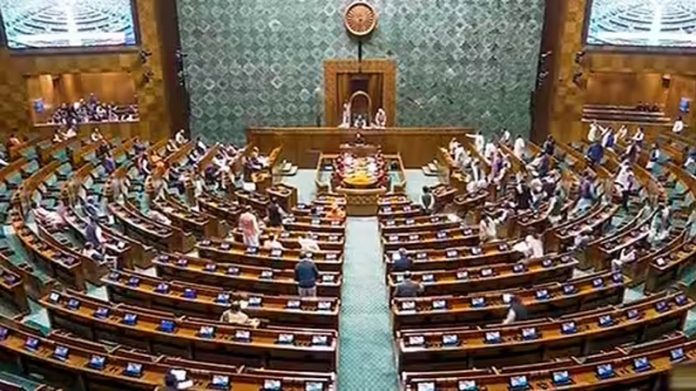Likely to be approved in present Govt’s last session
Sanjeev Pargal
JAMMU, Feb 4: A bill granting reservation to Other Backward Classes (OBCs) in Panchayats and Municipalities in J&K is likely to be listed in the Parliament in next couple of days while a bill proposing stringent action in paper leaks will be introduced by Union Minister of State in the Prime Minister’s Office (PMO), Dr Jitendra Singh Incharge Department of Personnel & Trainings (DoPT) in Lok Sabha tomorrow.
Jammu and Kashmir was also rocked by the paper leak scam involving the private exam conducting agency besides a number of touts in the year 2022 in which the Central Bureau of Investigations (CBI) has booked a number of persons and many of them are still in the jail. However, after paper leak scam involving exams of Sub Inspectors in Jammu and Kashmir Police (JKP), Panchayats Assistants, Junior Engineers etc, the Services Selection Board has set the things right and written tests for various posts are being conducted regularly in the transparent manner.
Subsequently, similar nature of paper leak scams were also reported from Himachal Pradesh, Rajasthan and some other States also which prompted the DoPT to bring comprehensive bill on the subject proposing imprisonment and hefty fine on test conducting agency and other accused but exempting candidates from its purview.
The bill proposed minimum 3-5 years of imprisonment and 10 years in case of organized crimes. It also proposed a minimum fine of Rs one crore. For service provider firms in examinations, a fine of up to Rs 1 crore, and recovery of proportionate cost of examination have been proposed as punishment. The firm will also be barred from conduct of public examination for four years.
It may be mentioned here that Jammu and Kashmir has also barred the agency from conducting further exams here which was under clout over leakage of question papers.
Dr Jitendra Singh will introduce the bill in Lok Sabha tomorrow which has been piloted by the DoPT and will cover all recruitment and entrance exams including UPSC, SSC, Railways, and banking recruitment exams, Common University Entrance Test (CUET), National Eligibility and Entrance Test (NEET), and Joint Entrance Examination (JEE).
All the computer-based examinations conducted by the National Testing Agency (NTA) will come under the purview of the Bill, the officials said.
A candidate, as defined in the Bill, shall not be liable for action within the purview of the Bill and shall continue to be covered under the extant administrative provisions of the public examination authority concerned.
Meanwhile, the bill providing reservation to OBCs in Panchayats and Municipalities which was approved by the Union Cabinet headed by Prime Minister Narendra Modi on Thursday, is also expected to be introduced in Lok Sabha in next couple of days. After Lower House nod, it will go to the Rajya Sabha for approval.
Among total seats reserved for the OBCs in Panchayats and Municipalities, one-third of them will be reserved for OBC Women.
There will be reservation for the OBCs in the posts of District Development Council (DDC) and Block Development Council (BDC) Chairpersons also besides the Sarpanch and Panch constituencies; Corporators, Councillors and Members of the ULBs.
However, percentage of reservation to be given to the OBCs will be decided by a Commission after the Parliament approves the reservation bill.
This will be for the first time that the OBCs will be getting political reservations in Jammu and Kashmir. Even they were not having reservations in the Government jobs and educational institutions.
Only four percent reservations were given to Other Social Castes (OSCs) in J&K. In the last Parliament session in December, the Parliament had approved bill brought by Union Home Minister Amit Shah for reservation to OBCs in jobs and educational institutions.
Elections to Panchayats and Municipalities which were due in October-November last year were deferred due to grant of reservations to OBCs besides certain discrepancies in voters of different Wards in the Corporations.


